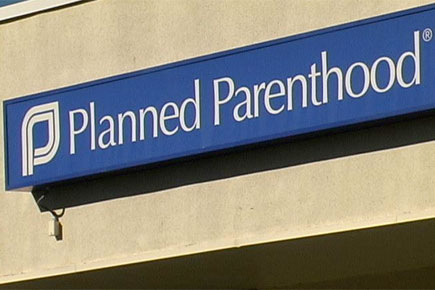Yesterday the federal government revoked Indiana’s law that would have no longer allowed Medicaid patients from using Planned Parenthood clinics or others that perform elective abortions.
State legislatures in Kansas, North Carolina, Oklahoma, Tennessee, Texas, and Wisconsin are considering similar bans on Medicaid funding, and the Indiana decision will likely affect how these plans proceed.

The state passed HEA 1210 last month, but any change in a state’s Medicaid plan must be approved by the Centers for Medicare and Medicaid Services (CMS). CMS administrator Donald Berwick told Indiana that the funding ban was illegal. Berwick said in a letter to Indiana’s Office of Medicaid Policy and Planning that states can limit the choices of Medicaid patients except when the choice involves family planning services. Berwick noted that the Indiana Legislative Services Agency stated this when it evaluated the plan in April.
While the federal statute governing the use of Medicaid providers does prohibit limiting the choice of family planning providers, backers of the state law said funding any provider that provides abortion violates the Hyde Amendment, the long-standing policy that prohibits federal funding of abortion procedures. Indiana lawmakers said giving Medicaid funds to groups like Planned Parenthood is funding abortion even if they do not fund the actual procedures.
A coalition of Indiana Republican Congressmen wrote to Health and Human Services secretary Kathleen Sebelius to make this argument. While recognizing the requirements in federal law for family planning choice, the legislators said the ban on Medicaid funding was still legal because it closes a “potential loophole.”
“Planned Parenthood, the single largest abortion provider in the nation, still receives funds for non-abortion services. In reality, by paying for total operational costs, these subsidies free other funds for abortions. Passage of HEA 1210 has effectively closed any potential loophole a committed Hoosiers to the true intent of the Hyde Amendment,” the members said.
“The Obama administration appears to be intent on trying to force Indiana to subsidize the business of abortion in direct contrast to the desires of the state legislature and the people of Indiana,” Indiana Right to Life president Mike Fichter said. “Indiana must refuse to be bullied by the federal government and must challenge this politically-charged determination with full vigor.”
The state, however, is still considering its options, according to the Associated Press. The state has 60 days to ask for a reconsideration of the decision. If the state does not change its laws, it could be subject to penalties.
“It is incredibly gratifying to have the federal government confirm what we’ve been saying all along, that HEA 1210 violates federal law … The message from the [CMS] is clear, you cannot prevent Medicaid patients from choosing their family planning providers,” Planned Parenthood of Indiana president Betty Cockrum said.
When other states have faced similar decisions, they have made changes to stay in good stead with the CMS.
Other parts of the Indiana law are not affected by the CMS decision. The law also requires patients to receive specific information on abortion, view a three dimensional ultrasound of the fetus, and listen to the heartbeat (patients can waive viewing the ultrasound or listening to the heartbeat). Abortions would be banned after 20 weeks. The law defined life as beginning with conception.
The law is being challenged in court by Planned Parenthood and the American Civil Liberties Union, but it is still in effect.








